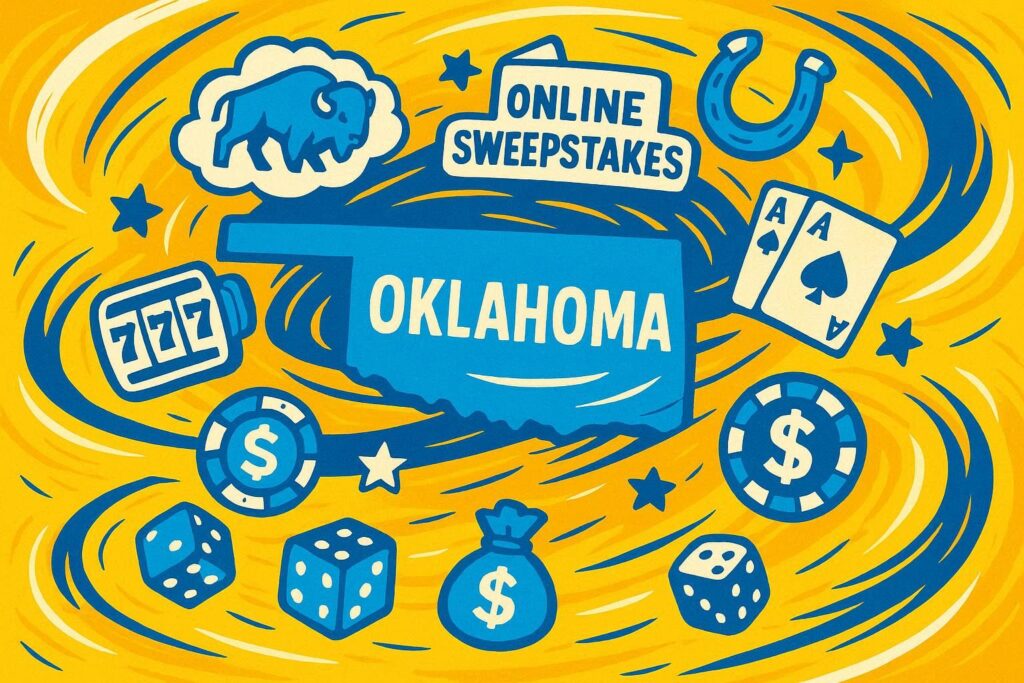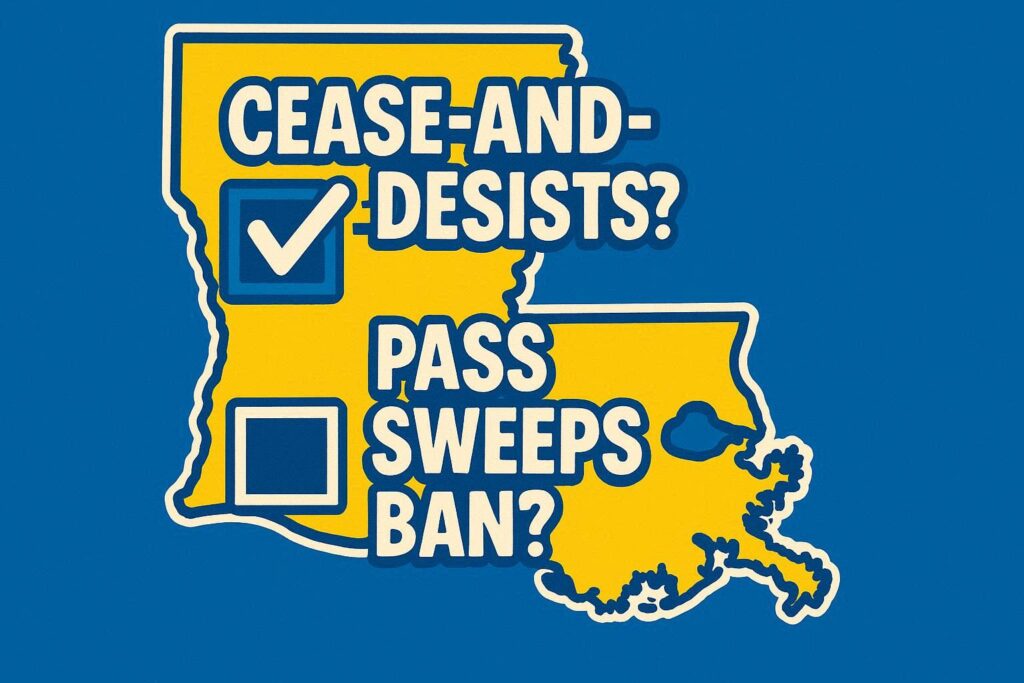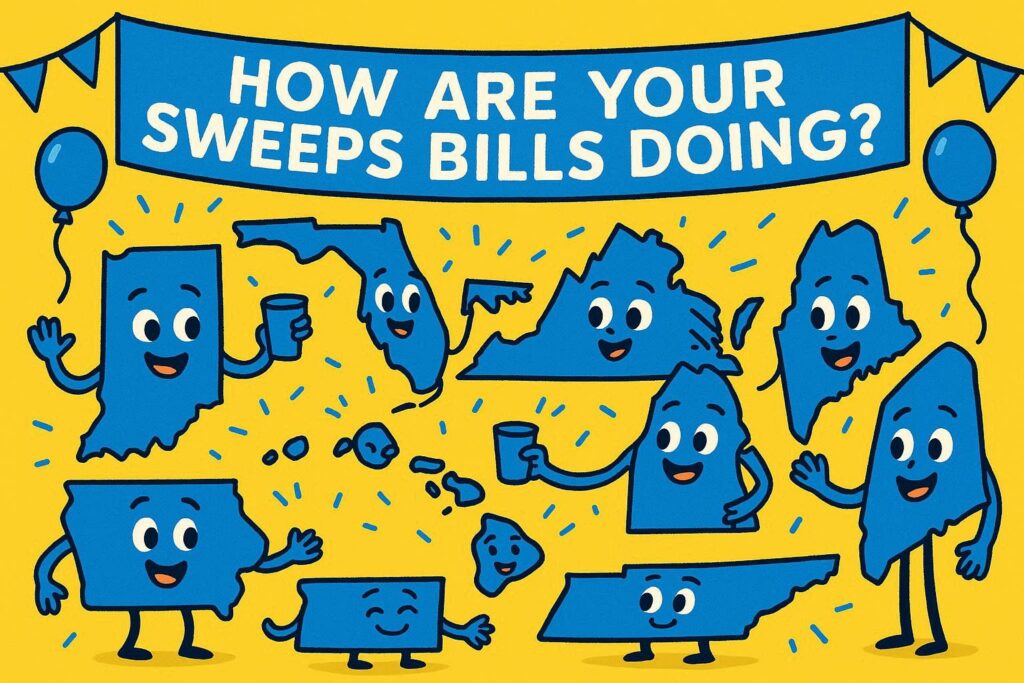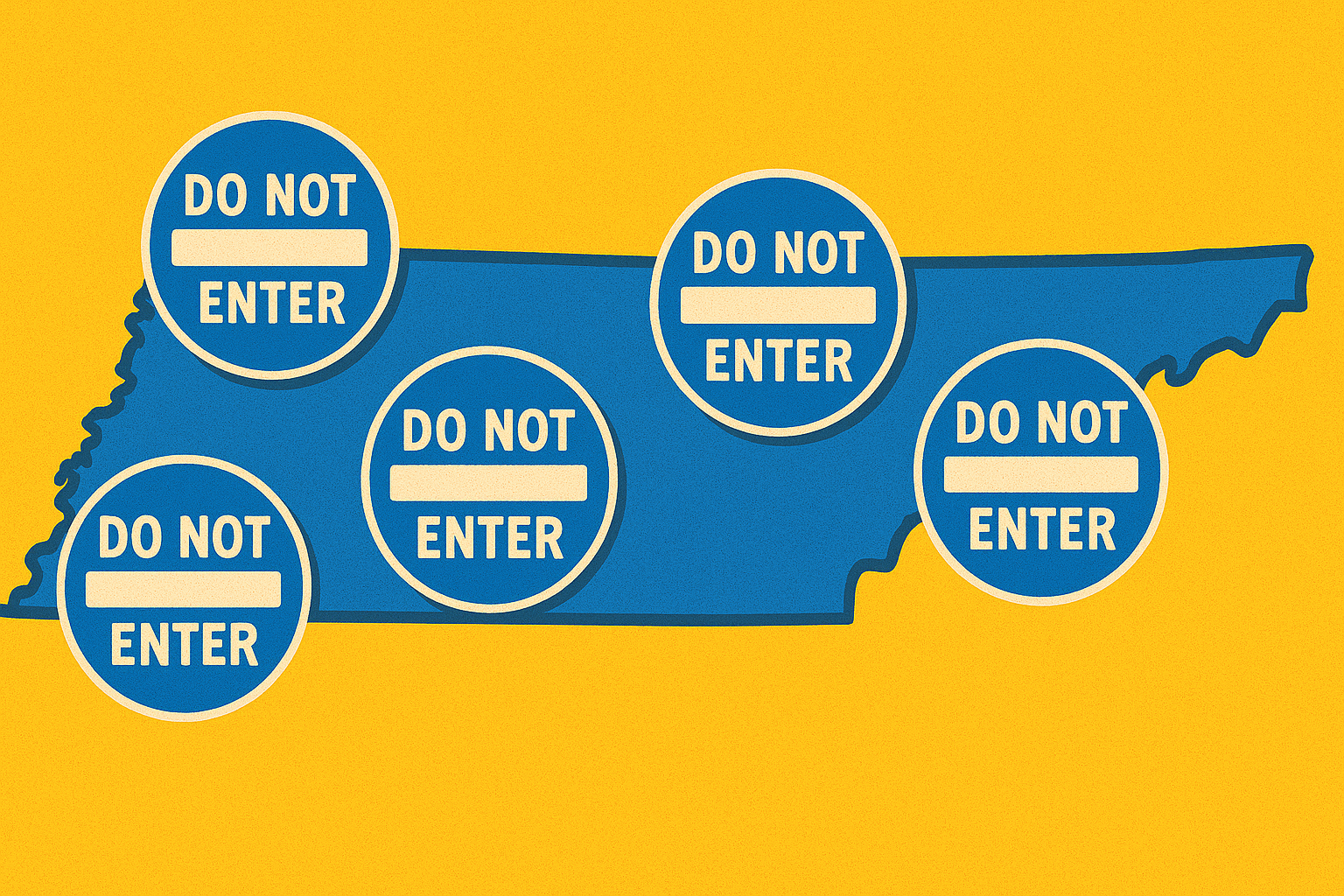Perhaps we jinxed it.
Just a few days after we published a story about how the new Ohio bill that would legalize online casinos would have zero effect on online sweepstakes casinos, an Ohio sweepstakes ban bill has been introduced.
House Bill 298 was filed Wednesday, and it’s written “to legalize and regulate internet gambling in this state, to levy a tax on businesses that provide internet gambling, and to prohibit online sweepstakes games.” Translation: It would legalize real-money online casinos while banning sweeps casinos.
Another sweeps ban bill highlighting ‘dual-currency’
Like its fellow sweeps ban bills in Louisiana and New York, Ohio’s HB298 defines an online sweepstakes game as one that “utilizes a dual-currency system of payment that allows a player to exchange the currency for a cash prize, cash award, or cash equivalent, or for a chance to win a cash prize, cash award, or cash equivalent.”
Sweepstakes casinos fall under this definition thanks to their use of two types of currency. One, most often called Gold Coins, is only for in-game use and has no redeemable value. The other, most often called Sweeps Coins, can be redeemed for cash.
HB298 further defines online sweepstakes games as ones that simulate any type of the following forms of gambling:
- Bingo
- Horse race betting
- Casino gambling
- Sports betting
- Any game of chance
The ticker is up to 12
Introduced by Rep. Brian Stewart and Rep. Marilyn John, HB298 makes it so now 12 states have considered bills targeting online sweeps casinos in the 2025 legislative session. (There’s a bill in Texas we’re keeping an eye on, too.)
So far, only one state — Montana — has passed the bill in both chambers and has sent the legislation to the governor’s office for a signature.
Bills in Florida, Mississippi, Arkansas, and Maryland did not pass. A bill in Illinois appears to be stuck in committee.
Then, bills in Connecticut, New York, New Jersey, Nevada, and Louisiana are still alive — and Louisiana’s bill gets its first House committee hearing Wednesday after unanimously passing in the Senate.
With early June ends of legislative sessions, time may be running out for the bills in Connecticut and New York. But New Jersey and Ohio both don’t end their sessions until Dec. 31, 2025, so there’s plenty of time for New Jersey’s bill and now for Ohio’s HB298.
HB298 has not yet been assigned a committee.
Ohio operators say sweepstakes industry is ‘illicit’
During a House Finance Committee hearing Tuesday for HB298, representatives from PENN Entertainment and MGM Resorts testified.
Rick Limardo, Senior VP of Government Affairs for MGM Northfield Park in Ohio, said he supports legalizing online casinos but wants protections in place for real-money operators against offshore betting sites and sweepstakes operators.
“These [sweeps] platforms, many of which are onshore with headquarters in the United States and whose apps are readily available on major online stores for download, take advantage of legal loopholes around sweepstakes and provide customers the ability to play casino games or substantially equivalent games with similar statistical odds of winning,” Limardo said.
“This illicit sweepstakes industry is not subject to any state gross gaming tax, does not offer any meaningful responsible gambling tools, and does not employ sophisticated KYC, identity- or age-verification processes. To the contrary, most of these platforms allow prospective customers to simply check a box and self-certify that they are of gambling age.”
Who are you calling illicit?
The Social and Promotional Games Association, one of two prominent sweeps advocacy groups, has long maintained its member operators are dedicated to the measures Limardo highlighted.
“SPGA members are committed to responsible gaming and transparency,” an SPGA spokesperson told Sweepsy. “They adhere to a strict Code of Conduct and utilize top-tier regulatory compliance measures, including advanced age verification, KYC, location verification, and AML technologies.”
Meanwhile, the newly launched and VGW-backed Social Gaming Leadership Alliance includes this information on its website:
“Leading online social game operators use secure systems to protect player data, have trained staff handling sensitive information and regularly test their security. They must also verify player identity and carefully monitor transactions to prevent fraud and scams with specific limits and safeguards in place to protect players’ money. In addition, payment providers require player payments to be protected by the same security systems and rules that protect credit card purchases at major retailers, and companies must follow proper dispute and refund protocols defined by payment providers and networks.”









